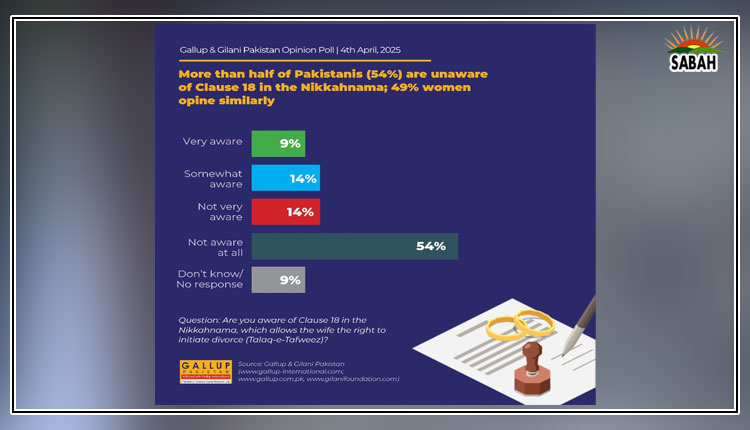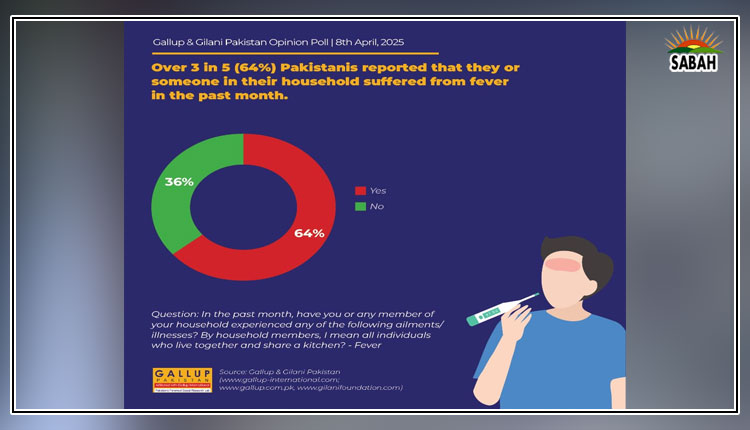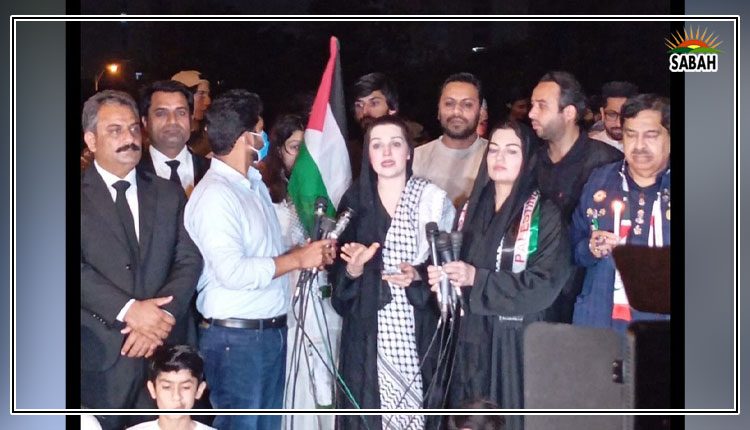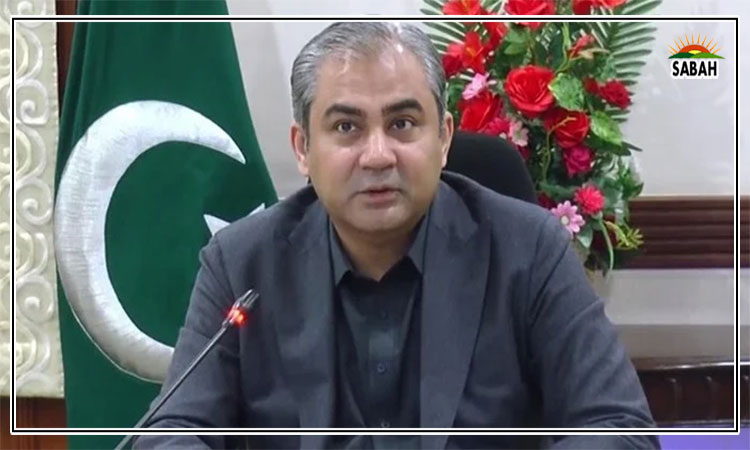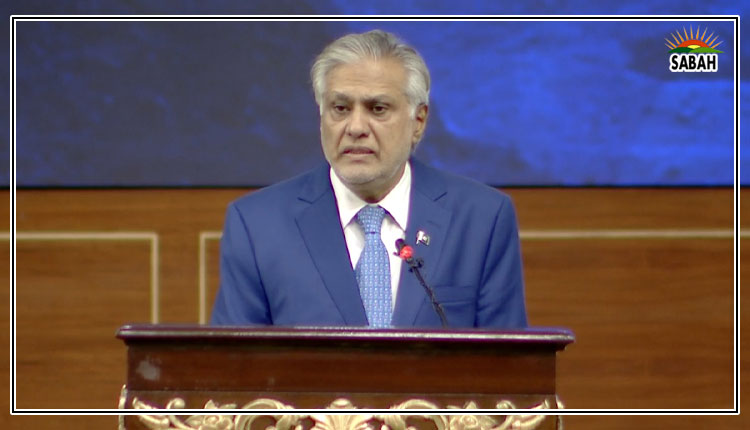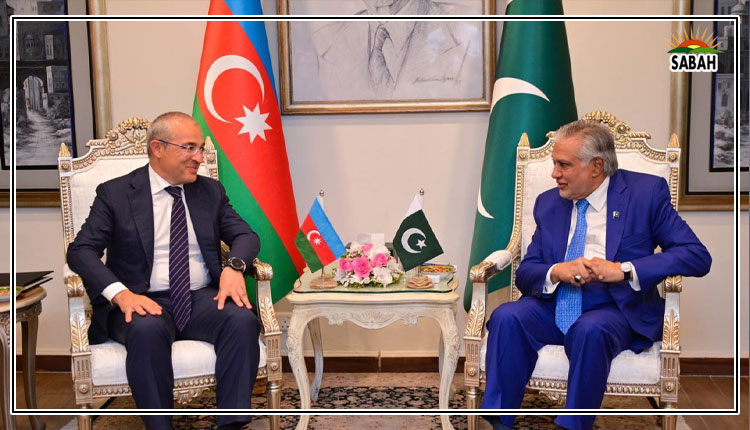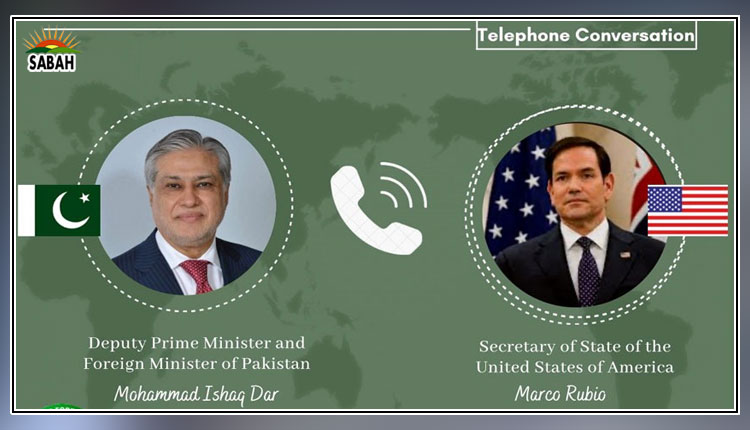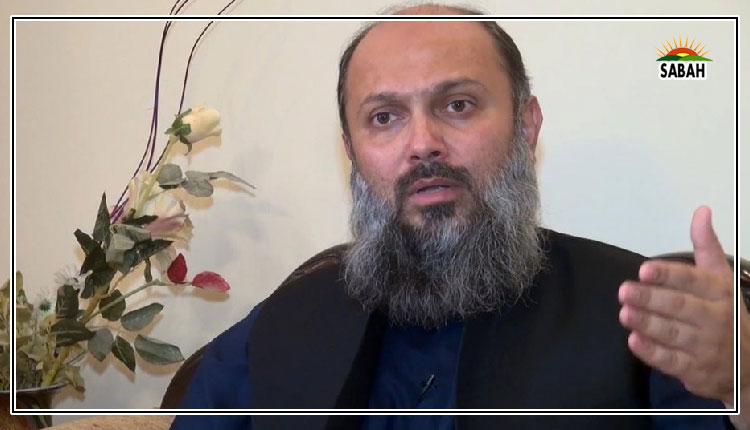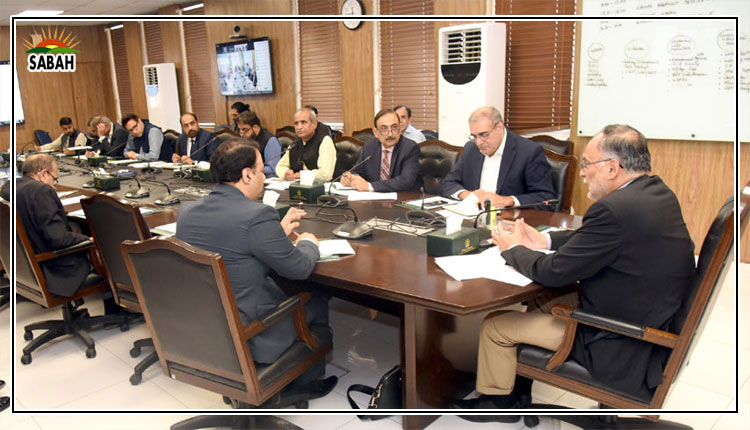Fighting polio: A mission for every citizen…By Ayesha Raza Farooq
Where the history of Pakistan’s battle against polio is replete with stories of perseverance and courage of families and frontline workers alike, it is also one dotted with opportunities that knocked on the doors of families that could not avail of them.
There is no denying the fact that the pain of polio survivors can only be felt deeply by their parents and caregivers. Yet, sadly enough, their regret for not vaccinating their children cannot reverse the effects of the disease or restore their children’s health. This is a harsh reality that many parents of polio-affected children only come to realise it too late.
The words of Amo Khan Kharoti, a courageous 24-year-old student from Kharotabad, Quetta, still echo in my mind. He recalls how, after losing the ability to walk, he would ask his mother whether she had ever allowed the health teams to give him polio drops. Her answer was always ‘No’. Paralysed in both legs due to missed vaccinations, Kharoti has faced numerous challenges, from needing help to reach the school bus to limited opportunities for pursuing his dreams, not to mention the societal stigma he endures. Despite his success in sports and his active participation in social activities, society still labels him ‘abnormal’, with the permanent tag of ‘polio affected’.
Barkat Shah from Mohmand District, whose daughter Husna was paralysed by polio, shared his regret over delaying her vaccination. He urged parents to take vaccines seriously, saying, “Don’t wait until it’s too late. Polio causes lifelong disability and has no cure”.
Reflecting on these experiences, it deeply saddens me to consider the plight of 69 children who, in 2024, were afflicted by polio due to missed vaccinations – whether from parental refusal, community boycotts, poor healthcare infrastructure, malnutrition or sanitation and hygiene issues.
While the fight to defeat polio continues in every street, mohalla and union council of Pakistan, we must unpack the remaining challenges that have to be surmounted hand in hand with the people of Pakistan. The concentration of cases in southern Khyber Pakhtunkhwa, which alone accounted for 19 of Khyber Pakhtunkhwa’s 21 total cases, and in Killa Abdullah, which registered 7 of the 27 cases in Balochistan, is particularly alarming. Sindh reported 19 cases and one case each from Punjab and Islamabad, taking the tally to 69.
Dera Ismail Khan district, with the highest number of polio cases in 2024 (10), is part of a corridor that stretches through other districts like Tank (5 cases), Lakki Marwat (2), and Bannu, Karak, and Kohat (2), all showing signs of ongoing transmission. A look at the past six years shows that these areas, along with South and North Waziristan, have remained hotbeds of polio transmission, with sporadic outbreaks over the years. In 2019, for instance, Bannu recorded 26 cases, Lakki Marwat had 32, and other districts such as D I Khan and Tank also reported multiple cases.
The persistence of the virus in these areas is due to a combination of inadequate healthcare services, vaccine hesitancy, poor sanitation, and security challenges that prevent vaccinators from reaching vulnerable children. Similarly, the traditional polio reservoirs of Karachi, Quetta, and Peshawar continue to present major hurdles. These areas, which are interconnected with Afghanistan, serve as ‘engines of transmission,’ exporting the virus across Pakistan due to moving populations, sub-par healthcare delivery, and child malnutrition.
While these challenges are immense, they are not insurmountable. Pakistan’s Polio Eradication Program has made significant strides in recent years. Despite setbacks, including a surge in cases in 2014, the programme had managed to bring polio cases down to single digits by 2017-18. However, the resurgence in cases in 2019-20, largely due to the suspension of polio campaigns after a violent incident in Peshawar sparked by misinformation, delayed progress.
Despite these setbacks, Pakistan’s Polio Program rebounded with renewed vigour, especially during the Covid-19 pandemic. By aligning its efforts with the Expanded Program on Immunization (EPI), the country successfully delivered a series of high-quality door-to-door campaigns, reaching millions of children, and even managed to maintain a 15-month stretch with no new cases from February 2021 to April 2022.
Unfortunately, complacency crept in, and the virus began to spread again, first in southern Khyber Pakhtunkhwa in 2022 and later, with the introduction of a new virus strain (YB3A) from Afghanistan in 2023. This highlighted critical immunity gaps, worsened by the displacement of high-risk populations during Pakistan’s national drive against illegal immigrants and the tendency to hide children from polio vaccinators.
Under the prime minister’s direct leadership, the programme garners support from the highest level of government. This commitment highlights the prime minister’s personal engagement in ensuring all necessary resources, coordination, and policy support are directed toward eradicating poliovirus from Pakistan. Triggered by the spread in 2024, the prime minister has appointed a dedicated team to conduct an analysis of the situation and launch a targeted response to address the growing risks from local transmission and cross-border movement. This high-level commitment reflects a national priority to protect every child from polio and achieve a polio-free Pakistan.
In mid-2024, the Polio Eradication Program introduced the 2-4-6 roadmap, a strategic initiative to enhance surveillance and vaccination efforts. This initiative promised three large-scale campaigns between September and December 2024, vaccinating over 33.1 million children in September, 45.6 million children in October and 44.7 million children in December campaign, nationwide, with the help of nearly 400,000 front-line workers who go door-to-door to vaccinate the children. A focused effort has been made to build the capacity of frontline workers, ensuring high-quality vaccination efforts and accountability across the board.
While these campaigns show promise, significant challenges remain. The synchronised campaigns with Afghanistan have not yet materialised, and campaigns in southern Khyber Pakhtunkhwa and tribal areas have had to be staggered due to local obstacles. Additionally, some frontline workers continue to face challenges in accessing children in hard-to-reach pockets of the region.
To effectively tackle polio, an integrated approach to routine immunisation is crucial. The synergies between the EPI and the Polio Program have been a special focus, with a dedicated committee overseeing the implementation of joint plans to tackle priority areas. Polio survivors, whose stools contain the poliovirus, pose a risk to other children especially those with no routine immunisation and low immunity, as the virus can spread through drainage and sanitation systems, which are often poorly maintained in Pakistan. To address these multifaceted challenges, the programme has expanded its messaging and partnerships, particularly in core reservoirs, to raise awareness, counter misinformation, and ensure broader community involvement through local influencers from the communities.
From January to June 2025, the focus will remain on wiping out poliovirus during the period of low transmission, with additional vaccination strategies targeting high-risk populations, including nomads and repatriating families. Surveillance along the Afghanistan border is being intensified to detect any traces of the virus, while strict accountability systems are in place to monitor refusals, fake marking, and underreporting of missed children.
The use of mobile technology to monitor and update vaccination progress in real time has been incorporated into the programme. Additionally, targeted community engagement efforts, led by trusted local influencers, are being employed to build confidence in vaccination campaigns.
Ultimately, the road to a polio-free Pakistan requires the collective effort of every citizen. Parents must take responsibility for vaccinating their children, and the community must ensure that every child, everywhere, is protected. The role of the media is also vital in providing accurate information and debunking myths surrounding the vaccine.
A polio-free Pakistan is not just a dream; it is a responsibility we all share. Only by working together can we protect future generations from this devastating disease.
COURTESY THE NEWS


